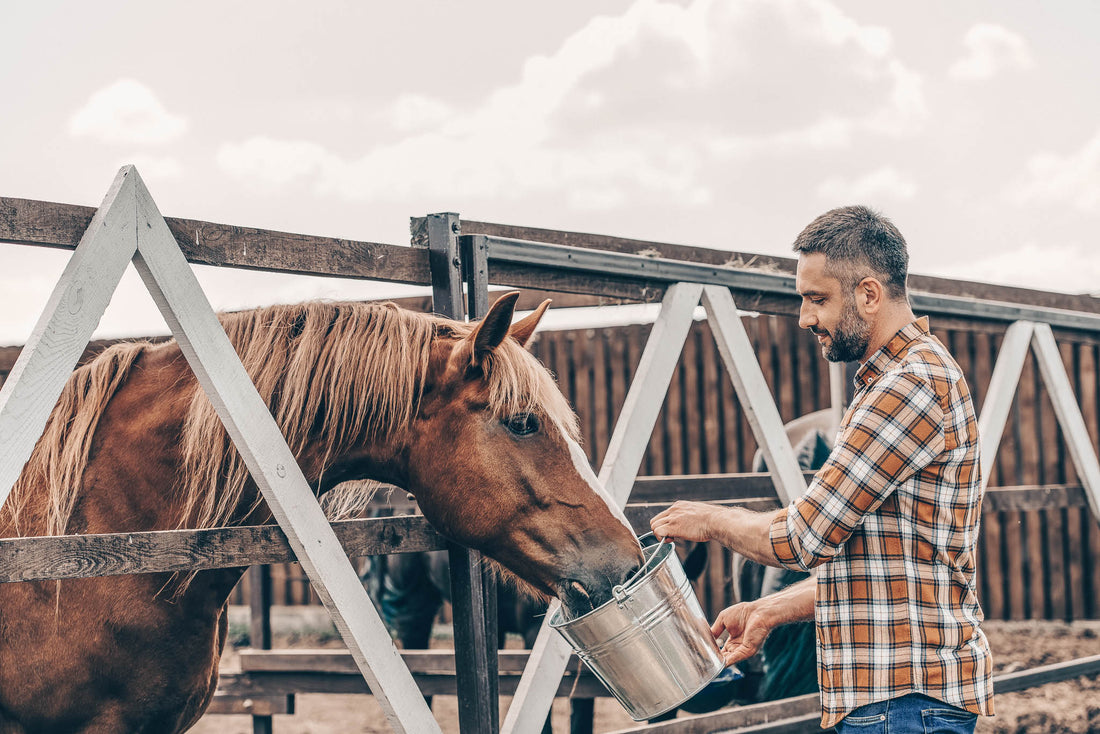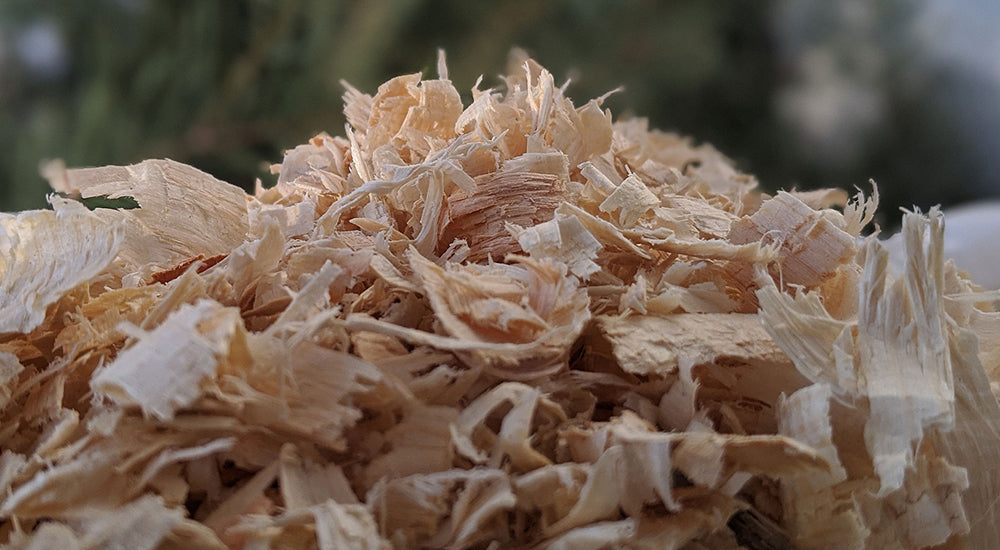7 Rules for Feeding Your Horse
Rules for feeding your horse: all you need to know about horse feeding and horse health as a first-time horse owner.

If you are a first-time horse owner, you might be wondering if there are any rules you need to know about feeding your horse. The answer is yes, there are some basic rules you should always stick to, and it’s best if you research and follow these tips to avoid any health issues.
Respecting these simple rules for horse-keeping will set the foundation for a healthy and happy animal and a beautiful friendship between you and your horse.
You should know that horses have a complex digestive system so taking your time to study their nutrition requirements is the best thing you can do before taking your horse home.
So, let’s dig in and learn more about the horse health rules you need to know as a first-time horse owner.
1. Always provide fresh, clean water.
Like any other animal, a horse should always have clean and fresh water available. A horse will drink about 20-25 liters of water per day or maybe more, depending on the weather and exercise. It may seem like an obvious rule, but it’s essential to make sure you check the water sources at least once a day to make sure they are clean.
2. Introduce your horse to slow feeding
You should know that the horse’s digestive system is nothing like our own, and they need to feed continuously. Horses have a relatively small stomach, and that’s why they can’t have large meals at one time.
Slow feeding is the best and most natural way to feed your horse and ensure they have access to fiber all day long. With slow feeding, the horse grazes whenever he wants, thereby encouraging the horse to eat less and still have free access to forage.
A great way to approach slow feeding is by using an adjustable Poly Hay Ring. This feeding system uses a net that allows the horse to graze whenever he wants without wasting hay and preventing inhalant allergies.
3. Use quality forage.

You want what’s best for your horse, and the first step to offering him the most nutritious diet starts with quality forage and horse feeders. It’s important to know that your horse’s diet should mainly consist of forage, as it can provide him with the nutrients he needs.
Continuous forage ensures a healthy digestive system and removes the stress of “when is my next meal”.
The most important thing to remember is to make sure you stick to quality forage and avoid moldy or dusty hay, as it has no nutritional value and can even make your horse sick. If you make changes to a horse’s diet, change gradually.
4. Make changes gradually.
If, for any reason, you need to change something in your horse’s diet, you can do this by making small changes at a time to help his digestive system adapt.
Abrupt changes in a horse’s diet can lead to laminitis, a painful and potentially life-threatening disease, as well as alterations in the intestinal microbiome.
Make sure you make small changes to a horse’s diet every day and allow at least ten days to help him adapt.
5. Feed according to workload, age and body weight.
To make sure your horse is adequately fed, you should measure the quantity he needs. Remember, each horse is unique, so you should figure out how much your horse has to eat. This may depend on his age, his weight, and how much he exercises.
This is where using a slow feeder can also help. You can load up the feeders with the right quantity of hay suitable for your horses. Another advantage is that you can regulate the feeding rate by choosing different net hole sizes.
6. Supplementing Vitamins & Minerals.
Most horses need a very simple diet of good pasture or hay and only need supplements or concentrates if there is a shortfall in nutrition. Diets high in grains can lead to digestive issues such as stomach ulcers and colic.
When horses are in extensive work, hard keepers or are nursing broodmares they have additional energy requirements that might not be met by just feeding quality hay or pasture grass. Pasture horses have very little need for extra calories from grain.
There's no need to be mixing expensive concentrated grains or bran mashes. Having your hay tested is a good idea, as it indicates what types of supplements you might add to your horse's diet.
7. Offer Multiple Feeding Locations.
When offering multiple feeding locations, you encourage movement and mobility, which helps digestion. Horses were not designed to stand still for extended periods of time, so facilitating movement is essential to tier health.
If you have more than one horse, offering multiple feeding locations will decrease aggression, as each horse has access to hay.
There you have it, the most important rules about feeding your horse. I hope you found some useful tips on how to take care of your new friend.
If you have any questions about horse feeding, please reach out. Our team will be happy to help.

